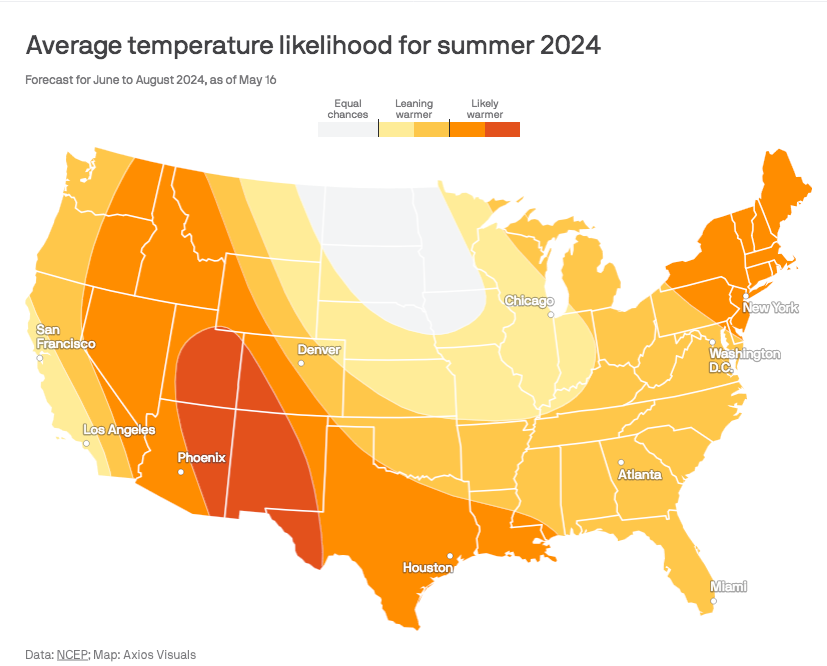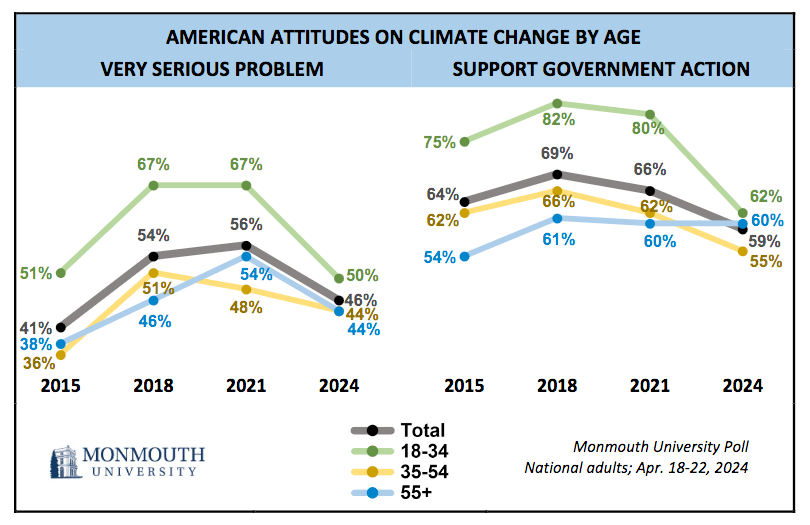The Worrisome Trend of Climate Ignorance
A convergence of troubling trends are occurring …
We’re about to experience yet another record breaking year of heat waves with summer temperatures expected to top last year’s heat which killed, reportedly, more than 2,300 people in the United States (that’s only what’s recorded and who we know of).
That heat will lead to a rather active and disastrous hurricane season this year, along with oceanic and lake water temperatures all around getting hotter. This week, Key West, Florida temperatures topped 114 degrees.
We’re already seeing climatic weather events in places, more recently, like Houston and New Orleans where flooding is severe. Texas experienced outages that impacted 1 million households. We’re seeing a rather active and disastrous string of tornadoes and high wind events in a number of places across the nation. That’s leading to deaths, and we could see more destruction and deaths.
Yet, meanwhile …
Florida Governor and former Republican presidential candidate Ron DeSantis signs a bill to remove any mention of “climate change” from Florida law
Republican presidential nominee Trump colludes with fossil fuel industry execs by promising to destroy President Biden’s climate policies if he’s elected president … on condition they give his campaign $1 billion.
As climate disaster worsens and climate denialism is on the rise, Media Matters’ Evlondo Cooper shows us how “[t]he volume of climate change coverage on corporate broadcast morning and nightly news and Sunday morning political programs decreased 25% from 2022 to 2023, from nearly 23 hours to a little more than 17 hours (1,032 minutes) across 435 segments. Climate change coverage on corporate broadcast TV news comprised less than 1% of corporate broadcast coverage aired in 2023.”
Also on the rise along with all of the above is climate ignorance: Fewer people believe climate crisis is a top issue, despite the fact it is the most important issue since we can’t live without any type of environmental or ecological support system. According to a recent Monmouth University poll “… the number who see [climate crisis] as a very serious problem has fallen below half. Support for government action to reduce activities that impact the climate has dipped below 6 in 10 for the first time since Monmouth began polling this topic nearly a decade ago.”
We’re at a point where urgent public response to and demand for action on climate crisis may not happen until there is, unfortunately, one massive and very destructive event that takes a lot of lives. Or, perhaps, there won’t be any major public demand for climate action until it impacts celebrities or, say, the health of professionals in sports such as tennis, soccer, football, cricket and golf. We can now envision, in the very near future, a moment or collection of moments where players on a sports field collapse and/or die from heat exhaustion on global media. Tragically, catastrophe seems like the only moment when the public and policymakers will finally respond to climate crisis in the way that’s needed.







